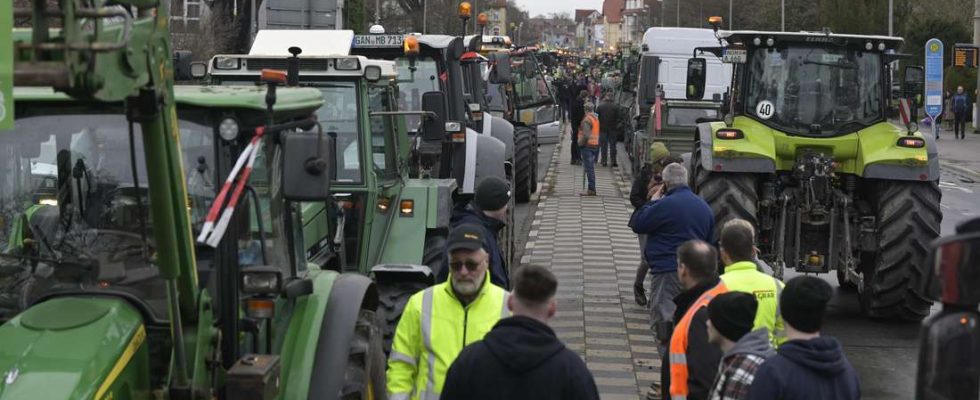On Thursday, numerous farmers protested against savings plans of the traffic light coalition in Göttingen at Gänseliesel. The protest is having an impact.
Update from 5:30 p.m.: Around 300 tractors rolled through Göttingen on Thursday. Farmers protested against the planned cuts in support – and their actions were successful.
Under massive pressure from agriculture, the federal government wants to reverse some of the cuts. The protest in southern Lower Saxony will continue for the time being, according to an initial reaction.
Reaction from Berlin is not enough for farmers
The partial withdrawal of the austerity plans that the government announced yesterday is not enough for farmers: they are demanding that the cuts be canceled without replacement and, moreover, a general change of course in agricultural policy in order to ensure the survival of domestic agriculture.
“That was just the prelude today – we’ll be back,” shouted Landvolk manager Achim Hübner on Göttingen’s town hall square to what police said were 350 farmers who had gathered there.
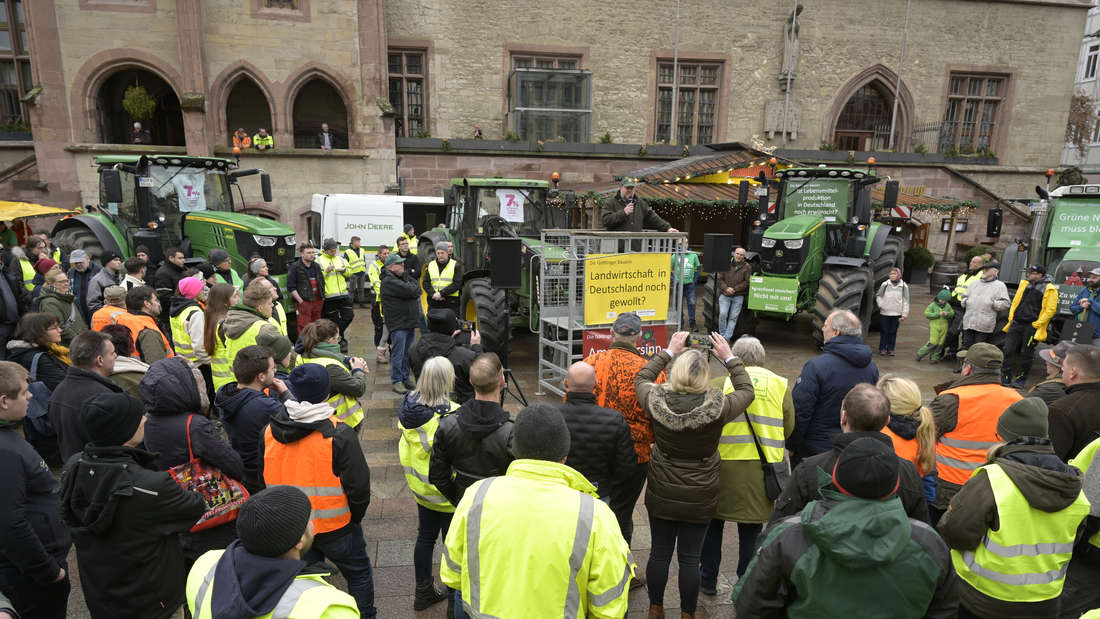
Working people and commuters in and around Göttingen will see next Monday that this was not an empty announcement: Farmers have already registered the next demonstrations for January 8th in Göttingen, but also in Northeim and many other places as the start of a week of action. to protest against the traffic light coalition’s austerity plans in the agricultural sector (we reported).
It seems hard to imagine that even more farmers will come onto the streets with their tractors in Göttingen next Monday, as yesterday there were already more tractors, telescopic handlers and other agricultural machines than ever before in Göttingen, the vehicles were omnipresent in and around the cityscape Access roads.
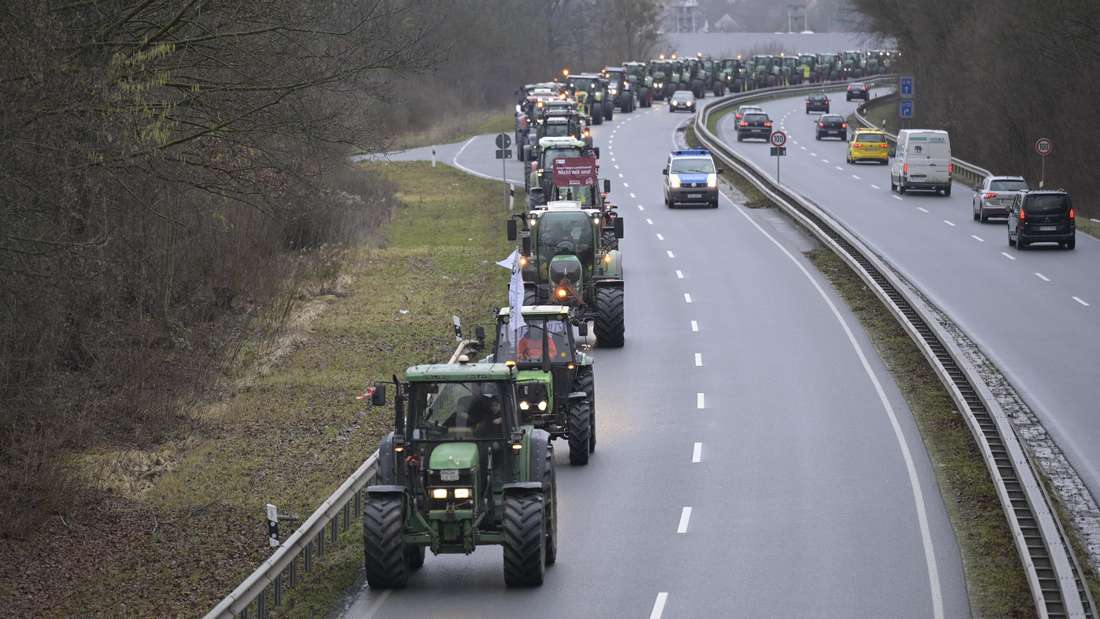
According to police information, there were more than 300 smugglers instead of the planned 200. They drove in three main convoys from the Uslar area through the Schwülmetal to Göttingen, from Rosdorf and from the Duderstadt and Herzberg area to the university town. Even though, according to police spokeswoman Jasmin Kaatz, there were “significant traffic disruptions” due to the tractor convoys, which were up to four kilometers long, there were no incidents and the drivers all behaved “very cooperatively”, especially towards the emergency services it.
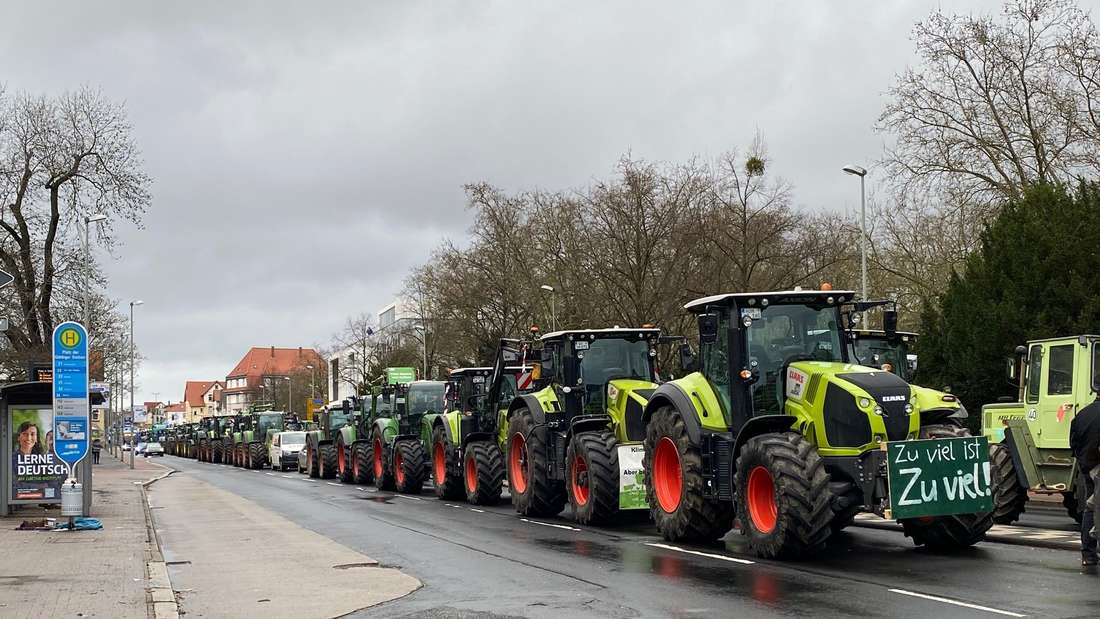
On the town hall square, lined with tractors, Vitus Obermann (23) from Bördel spoke for the rural youth, farmer Andreas Hesse from Ossenfeld (“The entire middle class is currently reaching its limits.”) and Landvolk managing director Achim Hübner: “The mood is so heated “Never before,” he said and, based on his many years of demo experience, he added: “I have never experienced as much pressure as is now coming from below.” This also means that the entire profession stands together and agrees how not in a long time.
The initiator of the spontaneous demonstration, which was originally planned as a small trip with 30 tractors from Uslar to Göttingen, received special applause.
Support from the catering industry
Farmer Henning Gehrke from Uslar, who went to the microphone with his seven-year-old daughter Clara, said: “We are farmers with passion and want to stay that way.” The restaurateurs of the Dehoga Einbeck-Northeim district association, led by their district chairman, showed solidarity with the farmers Wilhelm Johanning.
The innkeepers cooked 180 liters of pea soup financed by donations for the participants and handed it out to farmers during the protests. “Of course we support agriculture. The topic concerns us all,” said Johanning.
Update, 12:49 p.m.: The rally at Göttingen Gänseliesel is over. The wave of tractors parked there begins to leave on Weender Landstrasse. The participants once again draw attention to themselves by honking.
First report, Thursday, January 4th, 12:01 p.m.: Göttingen – Numerous tractors and tugs made their way to the university city in the Göttingen region on Thursday, January 4th. The impressive convoy, for which, according to the organizers, at least 200 tractors and tugs had been announced in advance, reached Göttingen city center in the morning.
The participating farmers and some freight forwarders parked their vehicles on Weender Landstrasse. One of the two lanes in both directions and the central island were blocked. One lane remained free for normal traffic in each direction.
Protests against savings plans of the traffic light coalition: tractor convoy reaches Göttingen
As early as 9:30 a.m., the convoy could be heard honking far and wide in the Göttingen city area. Many passers-by watched as the hundreds of vehicles rolled through the streets on their way to the city center. The destination of the participating farmers was the Gänseliesel, where a rally took place.

After the participants had parked their vehicles on Weender Landstrasse, they walked into the city center to the Old Town Hall. A good 500 people came together there to peacefully draw attention to the far-reaching consequences for their work and future as a result of the traffic light coalition’s austerity plans – including the taxation of agricultural diesel and the abolition of the vehicle tax exemption for tractors – and once again protested peacefully with their vehicles on the streets close.
The mood at Gänseliesel was extremely peaceful, and there was no hint of anger in the speeches. “You are doing a good job of getting the issue across,” said Green Party member of parliament Pippa Schneider, praising the farmers. Remarkable: The “Zur Krone” inn from Schoningen set up a mobile stand to provide free supplies to the protesters. That was well received.
Tractor convoy parks on Weender Landstrasse in Göttingen – rally at Gänseliesel
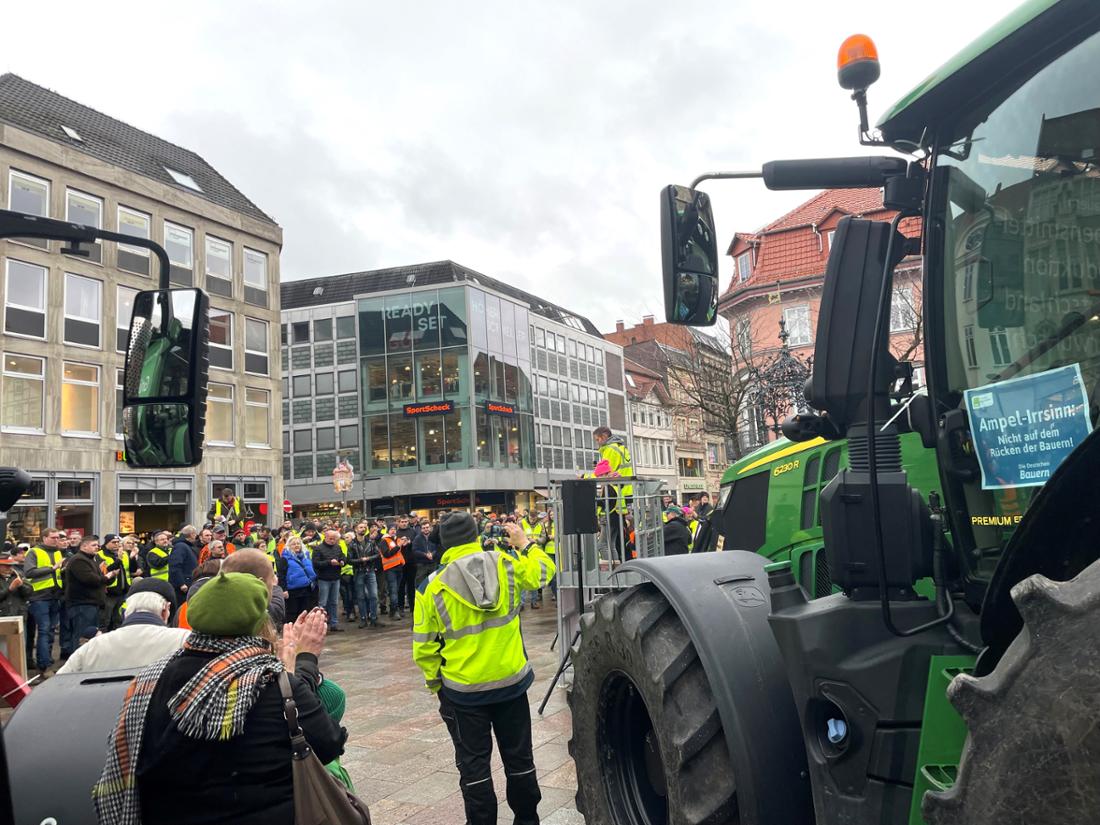
The organizers had announced the impressive parade in advance to enable all system-relevant professional groups to reach their place of work on time, as the protests were not directed against the population, but against the politics of the traffic light coalition, the organizers emphasized.
Representatives from politics were also represented on site: The southern Lower Saxony trio of the Greens in the state parliament was fully represented: Pippa Schneider, Michael Lühmann and Marie Kollenrott expressed solidarity with the protest and represented the opinion of their state parliamentary group: “I understand the peaceful protests of the farmers and welcome the clear stance and demarcation of the agricultural associations against the right-wing infiltration of the debate. Protests that are specifically directed against individuals must be condemned,” clarified Marie Kollenrott from Göttingen.
Greens: Better to touch company car privileges
In addition, it is not acceptable to place a new burden on a professional group that has already been severely affected in recent years: “We in the Green parliamentary group are also opposed to placing a disproportionate burden on this professional group by abolishing subsidies on agricultural diesel and vehicle tax Lower Saxony,” says Kollenrott.
Münden MP Michael Lühmann said: “The proposed savings in agriculture, however, cause planning uncertainty and rightly a lack of understanding. An adjustment to the so-called company car privilege would save climate-damaging emissions, but would significantly affect a higher-income group. From our point of view, this would be a much better step.” The Göttingen Bundestag member Fritz Güntzler (CDU) was also there. He was strictly against the planned changes, which would be to the detriment of farmers, and had emphasized this early on.
The main convoy started from Uslar around 6:30 a.m. and drove to Göttingen via Lödingsen, Lenglern and Holtensen. (Melanie Zimmermann/Thomas Copytz/)

